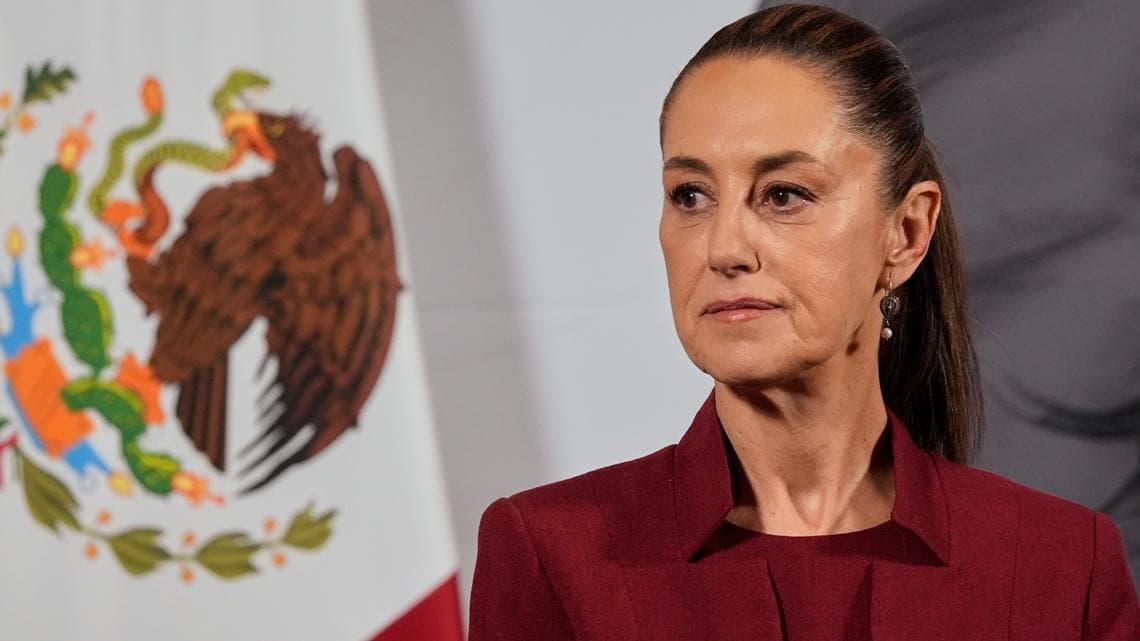We're loading the full news article for you. This includes the article content, images, author information, and related articles.
President Claudia Sheinbaum firmly denies reports of a planned US military intervention to fight drug cartels, asserting Mexican sovereignty amidst escalating US rhetoric.

Mexican President Claudia Sheinbaum has categorically denied reports that the United States is planning to deploy troops and intelligence officers to Mexico to confront powerful drug cartels. During her daily press conference on Tuesday, November 4, 2025, Sheinbaum stated unequivocally, “It’s not going to happen. We do not agree with any process of interference or interventionism.” Her government, she insisted, had received “no information” about such a planned incursion.
The president's swift rebuttal came in response to a report by NBC News, which cited two current and two former US officials familiar with the matter. The report, published on Monday, November 3, 2025, detailed that the Trump administration had initiated planning for a potential mission that would include ground operations and drone strikes against cartel leaders and drug labs. According to the sources, early stages of training for the mission had already begun, though a final decision was not imminent. The proposed operation would reportedly involve elite Joint Special Operations Command troops and CIA officers, operating under US intelligence authority, known as Title 50 status.
President Sheinbaum acknowledged that US President Donald Trump had previously offered to send troops to assist Mexico in its fight against organized crime. She confirmed that in past phone calls, she had consistently declined these offers. “I’ve always said thank you very much, President Trump. But no, Mexico is a free, independent and sovereign country,” Sheinbaum recounted. This stance is not new; throughout 2025, Sheinbaum has repeatedly rejected any suggestion of unilateral US military action on Mexican soil, emphasizing cooperation and coordination over subordination or intervention.
The US-Mexico security relationship has been a complex mix of cooperation and tension. For over a decade, the two nations have collaborated to tackle drug trafficking, with the US providing intelligence and operational support to Mexican forces. A joint statement on September 3, 2025, reaffirmed this cooperation based on “reciprocity, respect for sovereignty and territorial integrity.” However, the Trump administration has adopted a more aggressive posture, designating six Mexican cartels as Foreign Terrorist Organizations in February 2025, a move that provides a broader legal basis for action.
While this issue is geographically distant, it touches on principles of national sovereignty and the fight against transnational organized crime, which are highly relevant to Kenya. Kenya and Mexico established diplomatic relations in 1977 and are partners in several multilateral forums, including the Group of 15 and the United Nations. Both nations face significant challenges from organized crime and have a shared interest in upholding international laws that respect national borders.
A unilateral US military operation in Mexico would be a significant breach of international law, specifically Article 2(4) of the UN Charter, which prohibits the use of force against the territorial integrity of another state without its consent or authorization from the UN Security Council. Such an action could set a contentious precedent globally. For African nations, the principle of non-interference is paramount. The African Union's (AU) Constitutive Act includes the right to intervene in a member state under grave circumstances like war crimes, but strongly opposes interference from countries outside the continent. This stance underscores a continental consensus on African-led solutions to African problems, a principle that resonates with the broader global south's emphasis on sovereignty.
The US has recently escalated its anti-cartel campaign with deadly strikes on alleged drug-smuggling boats in the Pacific and Caribbean, actions which President Sheinbaum has condemned. A senior Trump administration official, responding to the NBC report, stated the administration is “committed to utilizing an all-of-government approach to address the threats cartels pose to American citizens,” but did not deny the planning. The potential for such a direct intervention raises concerns about regional stability, the effectiveness of militarized approaches to crime, and the future of diplomatic relations between the US and its southern neighbor.
Keep the conversation in one place—threads here stay linked to the story and in the forums.
Sign in to start a discussion
Start a conversation about this story and keep it linked here.
Other hot threads
E-sports and Gaming Community in Kenya
Active 9 months ago
The Role of Technology in Modern Agriculture (AgriTech)
Active 9 months ago
Popular Recreational Activities Across Counties
Active 9 months ago
Investing in Youth Sports Development Programs
Active 9 months ago